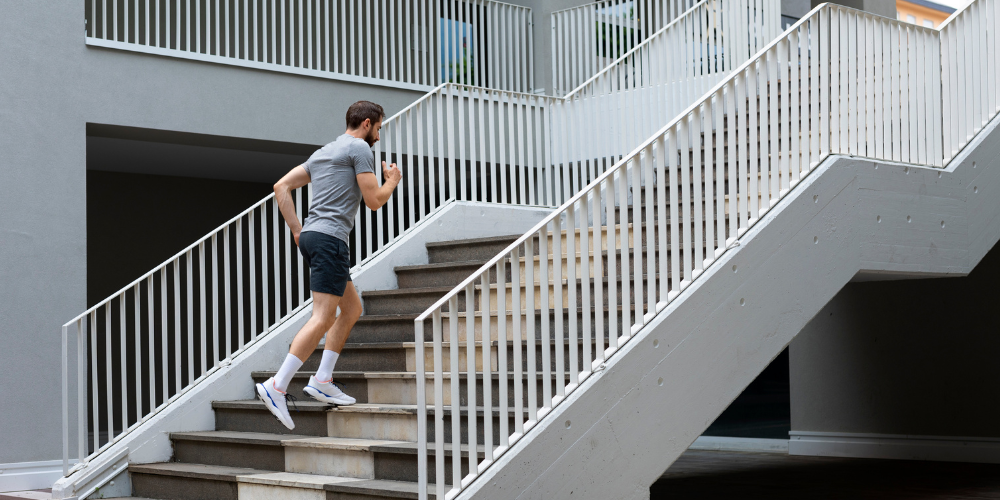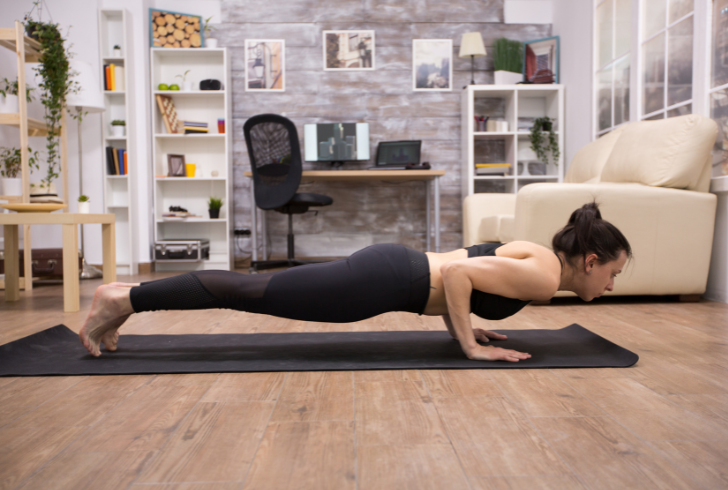
Short Daily Exercise Bursts Can Boost Heart and Lung Health, Study Finds

Staying active often feels like a challenge, especially for people juggling packed schedules. Yet, new research suggests that improving heart and lung health might not require long workout sessions after all.
Scientists have found that brief “exercise snacks”—short bursts of physical activity lasting about five minutes—performed twice a day can significantly enhance cardiovascular and respiratory fitness.
The Rise of “Exercise Snacks”
Researchers at the University of Oviedo in Spain examined how these short, flexible workouts can benefit those who struggle to maintain regular fitness routines.
Miguel Ángel Rodríguez, the study’s lead author and a doctoral researcher in clinical research, explained that “When people are asked why they don’t exercise, the most common answers are lack of time and lack of motivation. Exercise snacks directly address both—they’re short, flexible, and easy to fit into daily routines.”
This approach breaks away from traditional workout schedules that require 30–60 minutes at a time. Instead, individuals can complete a few quick, moderate-to-intense exercises during the day—something achievable even for those who consider themselves too busy to exercise.
What the Research Found

Freepik | Brief “exercise snacks”—five minutes, twice a day—can significantly enhance heart and lung health.
Published in the British Journal of Sports Medicine, the review analyzed data from 11 studies conducted across Canada, Australia, China, and the United Kingdom. The research included 414 participants between 18 and 75 years old, most of whom were sedentary or physically inactive. Their exercise routines varied from three to seven days per week, involving anywhere from two to ten short sessions per day, each lasting up to five minutes.
Types of exercises studied included:
1. Stair climbing
2. Lower-body strength workouts such as squats and lunges
3. Tai chi, a low-impact practice that promotes balance and flexibility
A striking finding was that 83% of participants stayed consistent throughout their programs—far higher than the 63% adherence typically seen in high-intensity interval training (HIIT). This suggests that shorter, more manageable sessions may help people maintain long-term fitness habits.
Tangible Improvements in Fitness and Health
The studies measured several health outcomes, including cardiorespiratory fitness, muscle endurance, cholesterol, body fat percentage, and mental health. Even though many participants did less than the weekly exercise time recommended by the Centers for Disease Control and Prevention (CDC)—150 minutes of moderate or 75 minutes of intense activity—they still experienced notable gains.
Short bouts of movement improved heart and lung function in younger adults and increased muscular endurance in older adults. Rodríguez noted that “These gains were achieved with exercise volumes far below current WHO recommendations. This suggests that small, consistent bouts of movement can meaningfully improve fitness.”
Why Short Workouts Work
The simplicity and flexibility of exercise snacks may explain their effectiveness. Small bursts of effort raise heart rate, strengthen muscles, and stimulate blood flow—without the mental barrier of carving out a full hour for the gym.
Cheng-Han Chen, MD, an interventional cardiologist at MemorialCare Saddleback Medical Center in Laguna Hills, California, who was not part of the study, confirmed that “brief periods of moderate-to-intense exercise at least twice a day were associated with improved cardiorespiratory fitness.”
Dr. Chen added that this strategy provides “a potential avenue for sedentary people to gain meaningful health benefits with only short amounts of physical activity.”
Easy Ways to Incorporate Exercise Snacks

Freepik | Fit minimal-equipment exercises, such as planks, into your daily routine by using breaks to stay active.
For those looking to try this approach, researchers recommend activities that require minimal equipment and fit naturally into daily routines.
Examples of exercise snacks include:
1. Fast stair climbing between work meetings
2. Bodyweight squats or lunges at home
3. Push-ups, burpees, or planks during TV breaks
4. Chair stands or light resistance training for older adults
5. Short tai chi or balance sessions for flexibility and coordination
Rodríguez emphasized the importance of tailoring exercise intensity to age and physical condition. For adults over 50, balancing safety and consistency is essential.
Move More, Even in Short Bursts
The key takeaway from this research is clear—every bit of movement counts. Exercise doesn’t need to involve long gym sessions or strict schedules. Short, consistent bursts of physical activity can strengthen the heart, improve stamina, and support overall health.
As Miguel Ángel Rodríguez noted, “Any opportunity throughout the day to move, even briefly, can make a meaningful contribution. Incorporating short, vigorous snacks of activity whenever possible remains a valuable and accessible strategy for improving overall health and cardiorespiratory fitness.”
Cheng-Han Chen, MD, agreed, emphasizing that these brief workouts are an efficient option for busy individuals to gain heart and lung benefits without demanding time commitments.
By turning brief moments into opportunities for movement—like climbing stairs, doing squats, or taking a brisk walk—anyone can improve heart and lung fitness without needing a gym or a long workout schedule.
More inFitness
-
`
Why Are Men Taller Than Women? New Genetic Study Finds Clue
For centuries, the average height difference between men and women has been noticeable—men generally stand about five inches taller. While environment...
July 23, 2025 -
`
How Upcycled Beauty Ingredients Are Reshaping the Industry’s Future
The beauty industry is going through a big shift — and it’s not just about trends. As waste problems grow and...
July 17, 2025 -
`
A Look Inside Faith Kipyegon’s Groundbreaking Mile Run in Paris
Last week in Paris, Faith Kipyegon returned to a place she knows well: Stade Sébastien Charléty. But this time, she wasn’t...
July 9, 2025 -
`
Dairy Is Making a Major Comeback — And Health Shoppers Are Loving It
Just a few years ago, dairy sat quietly in the back seat while plant-based alternatives took the spotlight. Now, it’s stepping...
July 4, 2025 -
`
Does Aging Cause Dental Problems?
Aging doesn’t automatically mean losing teeth or developing gum disease. In fact, older adults today are holding onto more of their...
June 25, 2025 -
`
How Upcycled Ingredients Are Shaping the Future of Cosmetics
What used to end up in bins or compost heaps is now finding a new life inside skincare bottles and beauty...
June 18, 2025 -
`
Rock Legend Rod Stewart Trains to Break Sprint Record at 80
Age isn’t slowing Rod Stewart down. Known worldwide for his legendary voice, stadium-filling tours, and timeless hits like “Maggie May”, the...
June 11, 2025 -
`
The Truth Behind Detox Diets – Health Boost or Risky Trend?
It’s hard to scroll through your feed without seeing someone sipping green juice with promises of instant energy, glowing skin, and...
June 3, 2025 -
`
Is Dr. Oz Fit to Lead Medicare?
The announcement of Dr. Mehmet Oz as President-elect Donald Trump’s pick to lead the Centers for Medicare and Medicaid Services (CMS)...
May 29, 2025














You must be logged in to post a comment Login